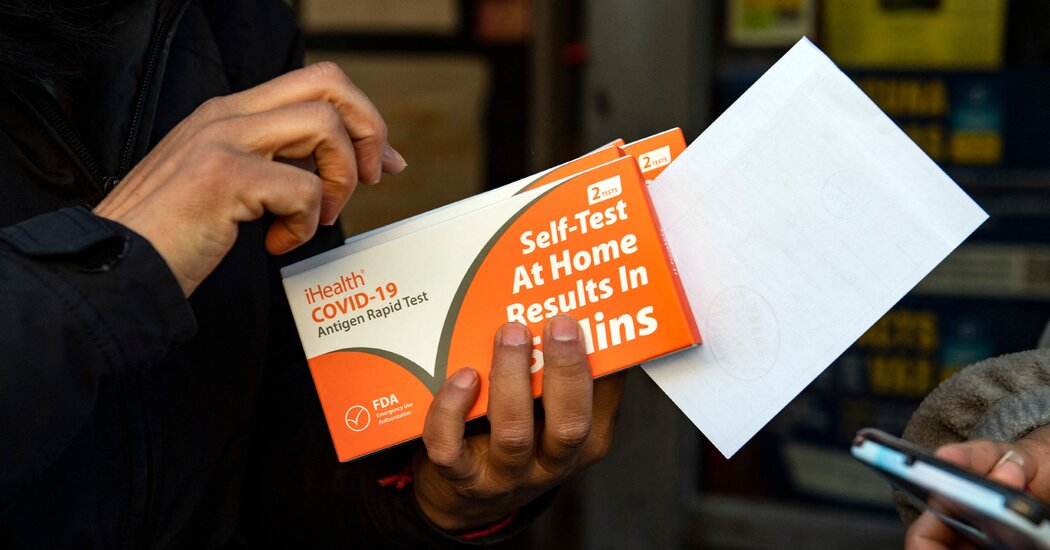The expiration date listed on the box might not be accurate. Here’s what to know.
As the government ships out another round of free Covid tests, some appear to have arrived already expired.
That doesn’t mean you can’t use them: The Food and Drug Administration has extended the expiration dates for many tests after collecting additional data from manufacturers showing their tests remain effective.
“It’s important to understand that you can rely on these Covid tests to be accurate,” said Courtney Lias, the director of the office that reviews in vitro diagnostics at the F.D.A.
How does the F.D.A. confirm tests still work?
Testing kit manufacturers were eager to get on the market as soon as possible at the height of the pandemic, so they submitted their products to the F.D.A. with expiration dates that were only around six months later. But in the years since, manufacturers have conducted additional assessments to confirm the tests work for a longer period of time. The F.D.A. has approved extensions for these tests on a rolling basis, sometimes as long as a year or two past the initially listed expiration date.
To get an expiration date extended, “these companies are required to literally take their product and stick it on a shelf and wait,” said Nathaniel Hafer, an associate professor of molecular medicine at the UMass Chan Medical School.
For example, Acon Labs, which makes Flowflex at-home tests, assessed batches of old tests every three months to ensure they still worked, said Michael Lynch, a vice president of sales and marketing at the company. Acon Labs added inactive virus particles to mucus from volunteers and used those samples to confirm the tests continued to produce accurate results.
